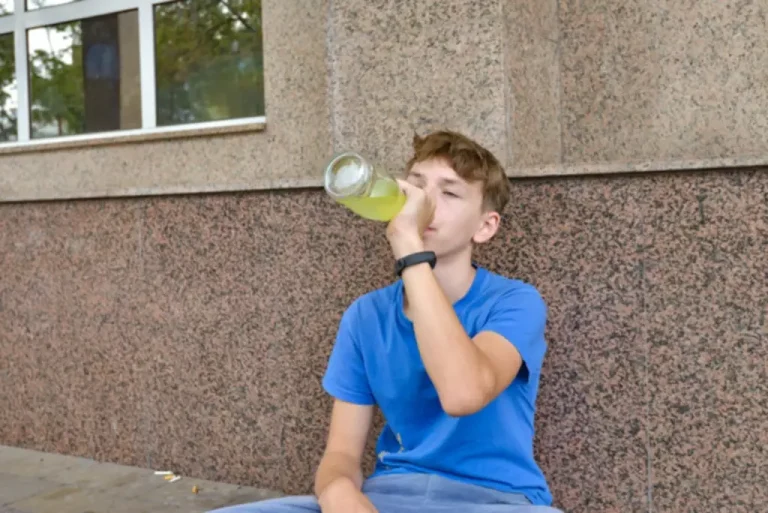Alcohol and Anxiety: Causes, Risks and Treatment

Remember, it’s not just alcohol which can causes symptoms that lead to panic attacks. Excessive intake of other drugs and food, including caffeine and sugar, may also be triggers. Excessive consumption of alcohol causes dehydration, which can make you feel dizzy and increase your heart rate.

Alcohol Abuse
For example, clients may become overburdened with the time and effort involved with participation in two treatments with potentially two providers in separate locations. Thus, previous research has suggested that parallel psychosocial treatments for anxiety and AUDs may be too demanding for clients, which can negatively influence treatment outcomes (,Randall et al. 2001). In addition, the parallel approach may convey an implicit (and erroneous) suggestion that the two disorders are separate, and the approach generally may be inefficient.
- People who stop drinking can also experience depression, irritability, and agitation.
- Society would have us believe that there’s no better way to unwind after a long day than by drinking a glass of wine, cold beer, or sipping your go-to liquor.
- Alcohol-induced panic attacks can compel people to binge drink to cope with the intense symptoms.
An Overview of ERP in Treating OCD
The review authors reported that reducing alcohol intake could improve a person’s self-confidence, physical and mental quality of life, and social functioning. According to the NIAAA, anxiety and other psychiatric disorders are common among those with AUD. AUD and psychiatric conditions may exacerbate each other, so it is possible for alcohol to worsen anxiety. Research in a 2019 article suggests that up to 50% of people having treatment for AUD also meet the criteria for at least one anxiety disorder. Research suggests there may be a bidirectional connection between anxiety disorders and AUD.
Mental Health Disorders
However, it generally is accepted in the comorbidity literature that this approach is not advisable (e.g., Kushner et al. 2007; Lingford-Hughes et al. 2002; Stewart and Conrod 2008). Recommendations to treat both anxiety and AUDs therefore appear warranted on both theoretical and empirical grounds. The literature for treating dual problem specifies three https://ecosoberhouse.com/ primary approaches, including the sequential, parallel, and integrated models (for a comparison, see table 3). Accuracy in prevalence estimates of comorbid anxiety and AUDs is essential for gauging the magnitude of the clinical and social impact of this comorbidity; therefore, data should be carefully selected with attention to sampling methods.

Effects On Dopamine
Two critical elements of CBT skills training also may be especially difficult for patients with comorbid social anxiety disorder, including drink-refusal skills and enhancing one’s social support network. Therefore, clients in CBT who also have social anxiety may particularly benefit from additional practice with assertiveness, perhaps including adjunctive social-skills training. Additional evidence for the substance-induced pathway comes from prospective studies demonstrating that the presence of alcohol dependence predicts the later development of anxiety disorders. alcohol and panic attacks For example, in a sample of college students followed for 7 years, anxiety disorders increased fourfold among those diagnosed as alcohol dependent at either year 1 or year 4 of the study period (Kushner et al. 1999). A final line of support is found in differential comorbidity rates among samples of anxiety and alcohol patients. In a seminal review, Schuckit and Hesselbrock (1994) noted that the frequency of alcoholism among anxiety patients was not markedly higher than in the general population, contrary to what would be predicted by the self-medication hypothesis.
- Addiction Resource is not a healthcare provider, nor does it claim to offer sound medical advice to anyone.
- However, if you find yourself frequently experiencing anxiety and regret after drinking, particularly after heavy drinking, it may be a sign of a more serious problem.
- However, drinking alcohol, especially heavily and over a long period of time, can actually increase your anxiety.
- Alcohol treatment programs are designed to address both types of disorders, since one tends to impact the other.
- The technique largely is effective because when clients who typically avoid and/or escape from situations that lead to anxiety are exposed to these situations for prolonged periods, they encounter corrective information that previously was unavailable.
Continue reading to learn about alcohol and anxiety, their interplay for health implications, and recovery treatment. A high quality treatment center will offer medically-supervised detox as well as multiple long-term treatment options. If you are struggling with insomnia, discuss the problem with your psychologist or other mental health provider. Following your last drink, you can typically expect the first signs of withdrawal to appear within six to 24 hours. Without the elevated levels of dopamine, you’re more likely to experience severe anxiety and depression.

Your addiction does not have to define who you are.
- If not much has changed, look for consistencies in panic attack triggers so you can avoid them in the future.
- This may be especially relevant during alcohol withdrawal, and clinicians therefore should monitor fluid intake and sodium levels during these periods.
- The choice of medication always depends on a person’s individual circumstances.
- The efficacy of these drugs for anxiety treatment has been established firmly in well-controlled, randomized clinical trials.
- While dopamine increases immediately after drinking alcohol and temporarily makes you feel good, when the inebriation has faded, whatever symptoms that were being avoided rebound.
- When these symptoms become overwhelming, the person might have an alcoholic drink to try to calm down.
- Alcohol may be a temporary, unhealthy way to relieve anxiety and forget about your underlying stressors; however, using alcohol does not erase these underlying triggers.
